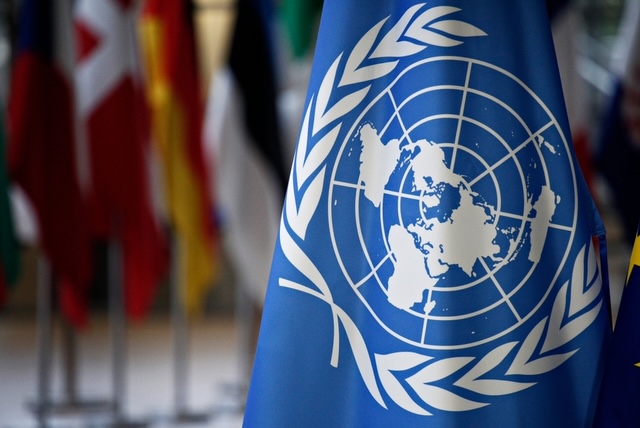U.N. is Actively Negotiating a Binding Global Agreement to End Plastic Waste
The United Nations concluded its second in a series of five meetings to develop a binding global agreement to end plastic waste late last week. During the negotiations, a well-organized group of more than 50 nations is advocating for eliminating “problematic plastics,” including restrictions on PVC and polystyrene. The Vinyl Institute sent a delegation to the Paris meeting to help educate national delegations about the value and recyclability of PVC.
The United Nations delegates are debating how to reduce plastic waste, with some looking for an aggressive global approach and others arguing for a more flexible plan that allows nations to establish solutions based on their unique situations.
Topics being actively debated include:
- Caps on plastic production
- Bans on polymers, ingredients, and products, including PVC and polystyrene
- Adoption of the Ellen MacArthur Foundation definition of “problematic plastic”
- New global chemical management schemes or global acceptance of current chemical management plans (US TSCA, EU REACH, Canadian Environmental Protection Act (CEPA))
- Ingredient transparency and disclosure for plastic polymers and products
- Expansion of agreement from just packaging to all plastic products (flexible and rigid)
- Requirements to design products for recycling
- Requirements to include recycled content in products
- Requirements for industry to fund waste management capacity building in developing nations
- Requirements for new regulations around pellet management during marine vessel transit
- New regulations on the fishing industry to track and report usage of gear, and assess fines when lost
All countries agree that we must do more to eliminate plastic pollution into the environment; the debate centers around how to eliminate plastic waste and leakage.
Generally, countries that produce petrochemicals, plastic resins and manufacture large volumes of plastic products support an aggress agreement which is also achievable. They support flexibility for national approaches to waste management and recycling, and promote the value of plastic products to reduce carbon and circularity. They oppose lists of problematic polymers, ingredients, and products.
Other countries, notably those in the High Ambition Coalition (HAC) to end plastic pollution, are advocating for strict caps on the production of polymers, and are taking the approach that “polluters must pay” for the development of waste management systems, as well as to clean up “legacy” plastic waste that has washed up on beaches in coastal communities and island nations.
Why does this matter?
The U.N. agreement has momentum; some agreement is expected to be signed in 2025. The deal will impact PVC, our ingredients, and what we are required to disclose in order to operate our businesses. It is possible that PVC could be banned from some packaging, and all plastics could be taxed to support global waste infrastructure.
What can you do?
- Please participate with your PVC trade association. Our trade associations are best positioned to educate decision-makers and protect our industry.
- Contact your elected officials at the state and federal levels and ask them to support our products, ingredients, and industry. Where they are in opposition, seek to understand the gaps, and how we might need to adapt, rather than have strict bans on PVC.
- Contact your customers and share this information. There is currently a vacuum of information about critical PVC uses, and we must educate the entire industry, including our customers, on this threat.
More information about PVC applications and recyclability:


